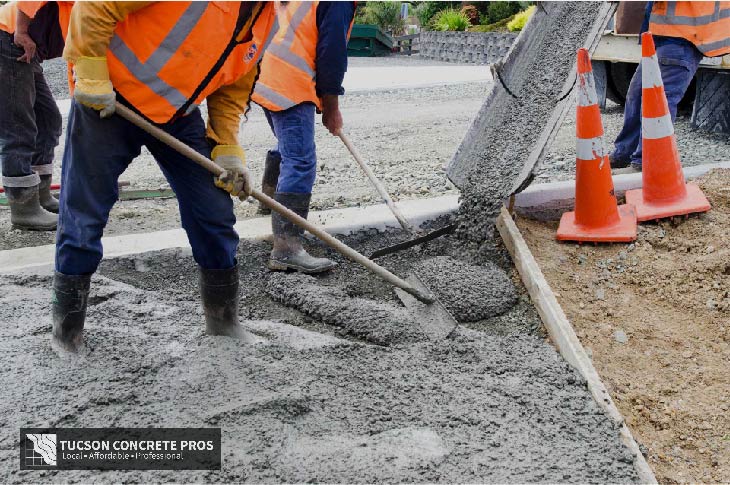Temperature Concrete Needs To Be Poured At
Concrete is a versatile and durable building material used in a wide variety of construction projects, from highways and bridges to buildings and homes. To achieve the best results with concrete, it's essential to control the temperature during the pouring and curing process. The perfect temperature for pouring concrete depends on several factors, including the type of concrete, the ambient temperature, and the specific project requirements.
In this blog post, we'll explore the optimal temperature range for pouring concrete and discuss the various factors that affect concrete temperature.
What is Concrete?
Before we dive into the ideal temperature range for pouring concrete, let's take a quick look at what concrete is and how it's made.
Concrete is a mixture of cement, water, aggregates (such as sand and gravel), and additives. The cement acts as a binder that holds the mixture together, while the aggregates provide strength and durability. Water is added to the mixture to activate the cement and make the mixture workable.
The exact proportions of the ingredients in the concrete mixture vary depending on the specific application and the desired strength and properties of the finished product. Once the ingredients are mixed together, the concrete is poured into forms or molds and left to cure until it's hardened.
Factors Affecting Concrete Temperature
The temperature of concrete is affected by several factors, including:
Ambient Temperature: The temperature of the air and the surface where the concrete will be poured can have a significant impact on the temperature of the concrete. If the air and surface temperature are too low, the concrete may not set and harden properly, while high temperatures can cause the concrete to set too quickly and crack.
Type of Concrete: Different types of concrete have different temperature requirements. For example, high-strength concrete may require higher temperatures for proper curing, while lightweight concrete may require lower temperatures.
Admixtures: Admixtures are chemicals added to the concrete mixture to alter its properties. Some admixtures can affect the temperature of the concrete, either by accelerating or slowing down the curing process.
Size and Shape of the Project: The size and shape of the project can affect the temperature of the concrete. Larger projects may require more time to pour and cure, which can affect the concrete temperature. Similarly, projects with unusual shapes or configurations may require special attention to ensure proper curing.
Optimal Temperature Range for Pouring Concrete
The optimal temperature range for pouring concrete is between 50°F to 80°F (10°C to 27°C). Within this temperature range, the concrete will gain strength and durability without drying out too quickly or cracking.
If the temperature is too low, the concrete may not set and harden properly, and may require additional time to cure. On the other hand, if the temperature is too high, the concrete may set too quickly, which can cause shrinkage and cracking.
During hot or cold weather, it's essential to take measures to control the temperature of the concrete during placement and curing. This may involve using cooling or heating techniques, such as using chilled water or ice to lower the temperature, or insulation or heating blankets to raise it.
It's important to note that the optimal temperature range may vary depending on the type of concrete and the specific project requirements. For example, high-strength concrete may require higher temperatures for proper curing, while lightweight concrete may require lower temperatures.
Concrete Temperature and Curing Time
The temperature of the concrete also affects the curing time, which is the time it takes for the concrete to reach its maximum strength and durability. As a general rule, higher temperatures accelerate the curing process, while lower temperatures slow it down.
However, it's important to note that curing time is not the same as drying time. While the concrete may appear to


Comments
Post a Comment